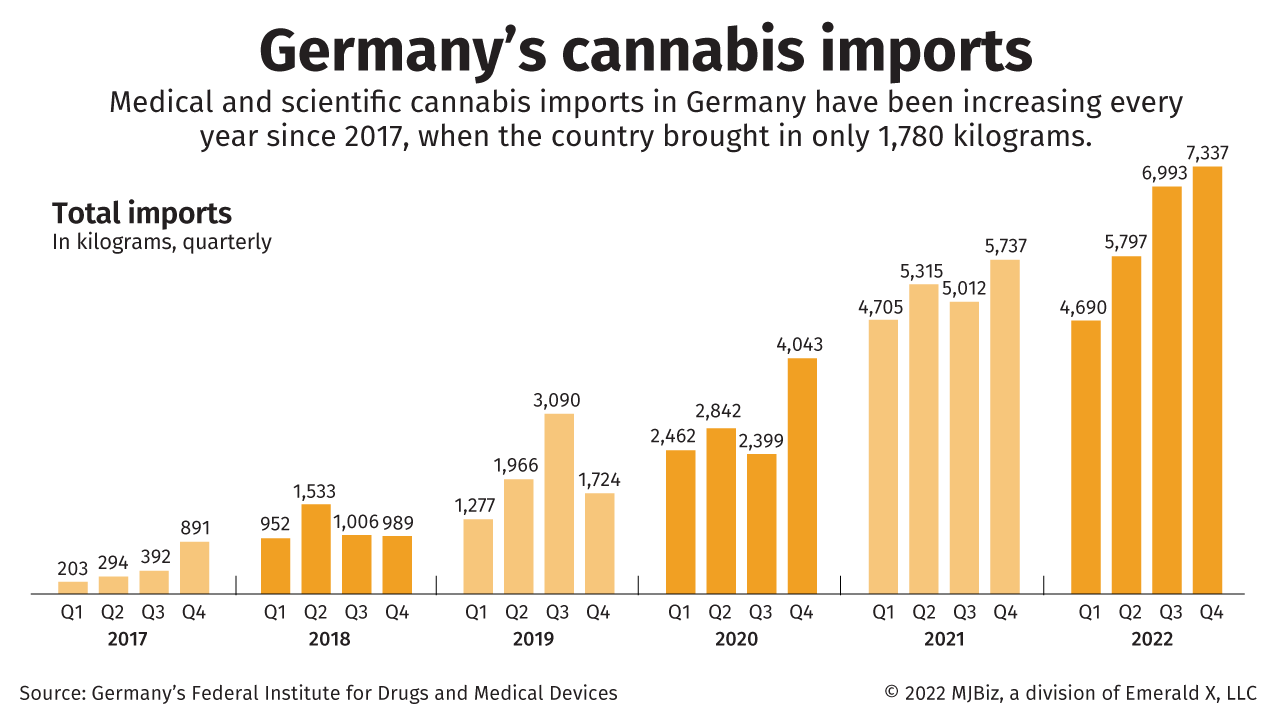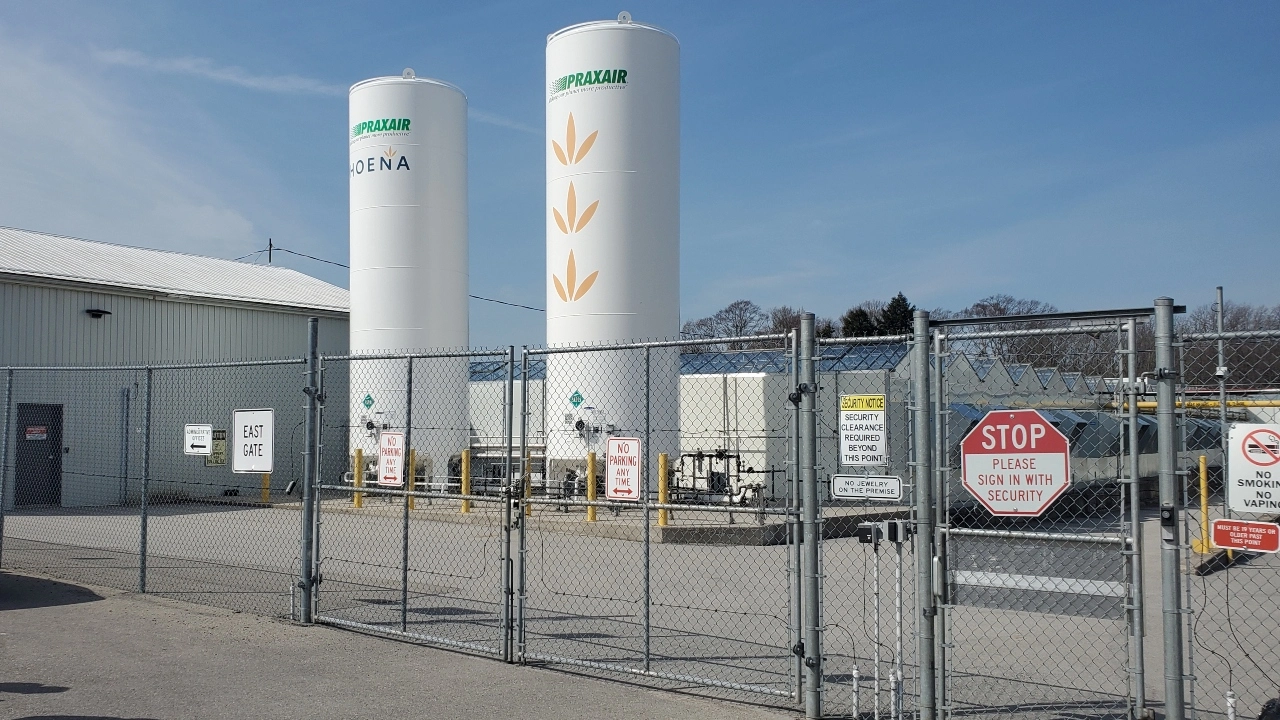The German government is backpedaling on its plan to implement nationwide recreational cannabis legalization, instead opting for a two-track, scaled-down approach with limited commercial opportunities – for now.
Germany’s new blueprint for a regulated cannabis industry, unveiled Wednesday, features two pillars:
- Nonprofit associations would be allowed to jointly cultivate cannabis for adult-use purposes and distribute it to members for their own consumption. This part of the new plan is expected to be implemented in 2023.
- Regional pilot projects with commercial supply chains would be rolled out for a limited period of time. The aim of these trials would be to collect data to support future public policy.
Germany is the latest country to scrap, postpone or otherwise present significantly watered-down cannabis legalization plans after originally promising full-scale legalization.
These policy pivots offer an important lesson to businesses on the importance of acting strategically and not reflexively.
Israel, Mexico and New Zealand have all unveiled ambitions to legalize and regulate adult-use cannabis in recent years, only to see those plans fizzle out for various reasons.
After unveiling a blueprint in October 2022, Germany’s draft framework was sent to the European Commission, the European Union’s executive branch, for approval to ensure compatibility with EU and global drug laws.
It’s clear that process did not go according to plan for the current German government.
Germany’s government said it agreed to rethink its cannabis legalization blueprint after discussions with the EU Commission and taking international law into account.
The new scaled-back plan aims to:
- Control quality.
- Prevent the transfer of contaminated substances.
- Protect minors.
- Protect the health of consumers.
- Curb the black market.
Germany’s federal government said it intends to present a draft law to parliament soon in addition to continuing efforts to promote the German approach of cannabis regulation to its European partners, particularly through missions abroad.
In the medium term, Germany is also examining the extent to which a sufficient number of EU-member countries could initiate their own cannabis regulation initiatives to comply with the relevant EU legal framework.
“The previous restrictive handling of cannabis in Germany has failed,” Federal Minister of Justice Marco Buschmann said in a news release.
“It’s time for a new approach that allows more personal responsibility, pushes back the black market and relieves the police and public prosecutor’s offices.”
‘Reality check’
Marla Luther, chief strategy officer at Avextra, a medical cannabis company in Germany, said the country was restricted by EU treaties in a way that Canada wasn’t when it legalized recreational cannabis in 2018.
Germany’s hands were tied because it’s part of the Schengen-area countries, which don’t have border controls.
“This was the biggest challenge on the European level – upholding the Schengen rules,” Luther said in an interview with MJBizDaily.
Avextra, a medical cannabis company with roots in plant-based medicine, is on a path to evidence-based cannabis medicines, similar to United Kingdom-based GW Pharma.
The Bensheim-headquartered company cultivates cannabis in Portugal and focuses on extracts-based innovation in Germany, where it sells into the medical market.
“The Germans have now found a way to figure out how to make this possible and still be compatible with EU treaties,” Luther said. “Maybe they were too robust in what they thought they could get through with the (EU Commission).
“They’ve had quite a reality check with (the EU Commission).
“There has to be a European-wide legal framework in order to make it possible. I think what you’re going to see now is Germany working a lot closer at the EU level to get a coalition together of seven countries or more.
‘Two-column’ model
Under the legalization plan Germany presented Wednesday, the nonprofit associations allowing personal cultivation and possession would be evaluated after four years.
If need be, this plan could be adjusted to account for issues related to health and youth protection as well as combating the illicit market.
Penalty-free possession would be allowed for personal consumption of up to 25 grams of cannabis.
- Germany might pivot to ‘cannabis legalization light’ amid EU pushback
- European cannabis execs would welcome German trial legalization program
Under narrow, clearly defined legal frameworks (which have not yet been determined), the associations would be able to jointly cultivate cannabis for recreational purposes for members to consume.
Commissioning third parties outside the association for cultivation would not be allowed, the government said.
Approval and monitoring would be carried out by state authorities, according to the news release, including compliance with quantity, quality and youth protection specifications and on-site inspections.
The German government said it might ban membership in more than one association.
Other details include:
- Up to three female flowering plants would be allowed for home cultivation.
- The number of members per association could be capped at 500, with a minimum age of 18. Members would have to live in Germany.
- Reporting and documentation would be required for the quantities produced and delivered.
- Membership fees would cover the association’s expenses.
- The possibility of importing seeds from third-party countries for the associations is being examined.
- A general advertising ban would be imposed on associations and for cannabis, but the government said “factual information” is acceptable.
The second pillar will focus on regional pilot projects with commercial supply chains.
Luther, the Avextra executive, said the key for the recreational-focused industry would be to see how strong the key performance indicators are for the proposed regional trial programs.
“At the end of the day, the biggest issue is going to be how big or small these model regions will be, and that’s how you know whether the business model is going to work,” she said.
The German government characterizes this pillar as “the next step on the way to a nationwide regulation,” according to the release, implying full legalization could still occur in the future.
The public policy goal of this step would be to create and collect data to scientifically examine the effects of a commercial supply chain on public health and youth protection as well as the illicit market.
Details for this pillar weren’t as fleshed out as they were for the nonprofit pillar.
Some key points include:
- The project duration is expected to last five years.
- Approval of the sale of edibles is being examined.
- The trial would be scientifically monitored and evaluated, and the results will be shared with European partners and the EU Commission.
Matt Lamers can be reached at matt.lamers@mjbizdaily.com.





